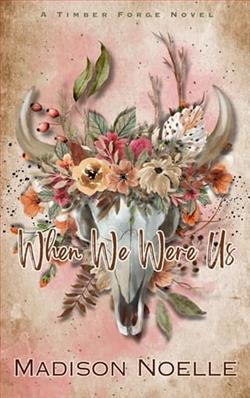Page 37 of April Flowers
Why was he spending time with her mother?
Margot decided to corner him tomorrow and demand answers.
Then again, she didn’t want to seem crazy. Maybe Vic Rondell was a Good Samaritan, a man who’d met her aging mother and realized none of her children were around. Margot stewed with shame. Despite everything that had happened, she should have visited. She should have called.
Shoulda, woulda, coulda.
Margot returned to the living room but found she couldn’t focus on television. After ten minutes of flicking through channels, she turned it off and walked through the house like a ghost. Before long, she found herself on the other side of her father’s office, her heart pounding. She wondered if, like the rest of the house, her mother had kept the office the same as it oncehad been. Margot was suddenly terrified that the old mahogany desk and all her father’s books would be layered with dust.
She knew her mother didn’t want anyone going in there. But her mother was fast asleep. Margot took a breath and opened the door.
To Margot’s surprise, it looked as though someone had been using the study lately. There were pens and notebooks on the desk, and a few books had been removed from the shelves and were scattered here and there as though someone was reading from them and taking notes. There was an air of studiousness. Margot walked up to the desk, keeping the door open so she could hear Lillian if she came downstairs. Thank goodness for that creaky staircase.
To Margot’s surprise, many of the books scattered across the desk were diaries.
They were Lillian’s. The shock hit her like a bus. She’d never known her mother to keep a diary. So surprised was she that she collapsed in the swivel chair and forced herself to take ten deep breaths.
Here they were: her mother’s thoughts, her mother’s inner world, dated between the early eighties to 2021. Forty years of Lillian Earnheart. Forty years of secrets.
But Margot didn’t know if she had the strength to approach Lillian’s inner world. She guessed that within the diaries, her mother had spent many, many pages hating motherhood, hating Margot, and hating what she was so sure Margot had done. She guessed each book could be labeledI Hate My Youngest Child and Here’s Why I’m Right. Margot shivered.
At the same time, Margot was at the end of her rope. As the terrifying wind crashed against the house, she returned to the kitchen to refill her wine and prepare herself.
She told herself to read a diary entry from a happier year: a time of her mother’s life before her father died and she fully hated Margot, before everything had fallen to pieces.
Maybe, she reasoned, through the early diaries, she could figure out who her mother had been. Perhaps she could find a way to love her mother better.
Maybe, maybe, maybe.
I’ve built my life on “maybes,”Margot thought.
Margot returned to the study and sat down with a diary from 1984, two years before she was born.
This was what she read:
April 22, 1984
Frank spent all morning begging for another baby.
Margot stopped reading abruptly. Her head rang with surprise. She’d understood herself to be a mistake—a terrible error in an otherwise fully planned life.
Was it possible her father had really wanted her?
It was incredible what this single sentence did to Margot’s psyche. Suddenly, it was as though everything she’d ever known was flipped on its head.
She forced herself to read on.
I told him I’m tired. I told him that three children are enough. But I have to admit that Daniel, Henry, and Melissa are getting older. They spend time with each other and alone, fleeing the house in the morning to run along the beach and spread their wings. It’s hard, as a parent, to admit that one day, you might be obsolete to them.
Sometimes I worry that Frank would leave if I don’t want another child. Is that reason to have another one? I don’t know. I’ve struggled the past year. There have been entire days of darkness, days during which I’ve locked myself in the bedroom, and Frank has had to deal with the children and their needs.For some reason, Frank never makes me feel bad about it. He kisses me and says, “It’ll be sunnier tomorrow.”
God has blessed me with the most wonderful of men. He has cursed me with a horrible mind.
Margot couldn’t breathe again. She closed the diary and put both hands over her heart.
This was the “narcissistic parent” she’d known all her life. But it was hard to believe. The woman who wrote about her life in these pages seemed genuinely and terrifyingly aware of her depressive spells. She seemed aware that she wasn’t always the best mother.
More than that, she seemed genuinely and wonderfully loving. She loved Frank more than she loved the world and all the people in it.















